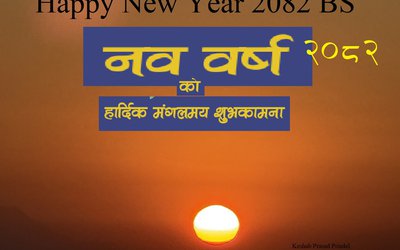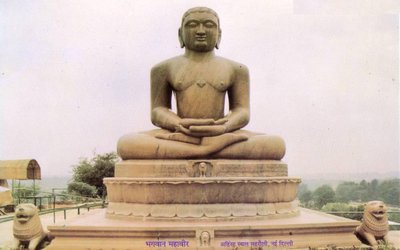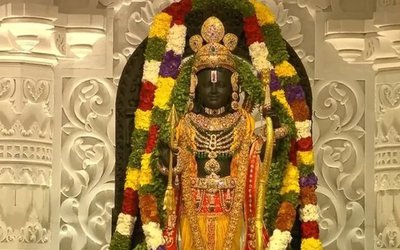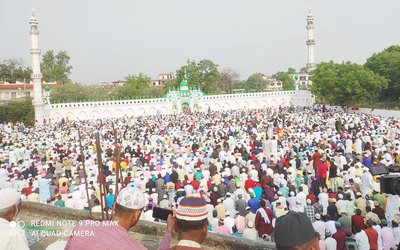
Women in India and Nepal celebrate three Teejs. Teej is one of the many festivals of Nepal and India celebrated by women. Teej Vrat is primarily observed by women who hail from the northern parts of the country.
This year, Hartalika Teej will be observed on August 30. Where it is celebrated: In Nepal, it is mainly celebrated in all over Nepal particularly in hills.
During this festival, women fast and pray for the health and well-being of their husband and family. Young unmarried girls pray that they will someday enjoy a happy marriage. There are also many special events for Hartalika Teej, which span across three full days.
Before the start of the fasting, they eat sweets and other delicious food (Dar khne). On Haritalik Teej women dress in red or in bridal gowns and gather for a time of merrily singing and dancing. They feast all day until midnight, at which point, the fasting of day two begins. They don’t even drink one sip of water all day long and spend much time visiting temples of Shiva. At night on day two, a lamp is kept lit all night. Then on day three, they bathe in red mud that is believed to remove from them all sins.

The The festival is celebrated differently in different parts of the country. Teej is one of the many festivals of Nepal celebrated by women. It is celebrated by girls and women, with songs, dancing and prayer rituals.
On this auspicious day, women keep a fast and worship Lord Shiva and Parvati for a blissful married life. The fast is also known as nishivasar nirjala vrat. Teej refers to the "third" day that falls every month after the new moon (Amavasya), and the third day after the full moon night of every month.
This is also a festival of family reunion in the past. Daughters and daughters in law visit their homes and celebrate the festivals with their mother and sisters together. I will complete following performing puja and Rishi Panchami.
And interestingly, Teej is of three types - Haryali Teej, Kajari Teej and Hartalika Teej and they are celebrated on the third day of the Lunar fortnight. Each of these auspicious days that fall almost a fortnight apart.
On the auspicious day of Haritalika Teej on August 30, women keep a fast and worship Lord Shiva and Parvati for a blissful married life. Hartalika Teej falls on the third day, Shukla Paksha (waxing phase of the Moon) in Bhadrapada. It is observed one day before Ganesh Chaturthi.
Hartalika is a combination of two Sanskrit words Harat (kidnap) + Aalika (female friend). It refers to the event that took place before Mata Parvati got married to Lord Shiva. According to a legend associated with this Teej, Mata Parvati's father had chosen Lord Vishnu for her, but since she wanted to get married to Lord Shiva, she sought help from one of her friends. Mata Parvati's friend "abducted" her and took her to a thick forest where she could hide. The word 'abduction' shouldn't be misinterpreted. In this context, it is a gesture of lending help to a friend who wished to marry the man of her choice.
On the day of Hartalika Teej, women prepare clay idols of Lord Shiva and Mata Parvati and worship them for a blissful married life. This ritual is similar to the Hariyali Teej festivities.
Hartalika Teej is celebrated in Nepal and Indian state of Rajasthan, Uttar Pradesh, Uttarakhand, Bihar and Jharkhand, Rajasthan, Madhya Pradesh and Chhattisgarh. However, the one common thing about these three Teej is that women worship Lord Shiva and Parvati to seek their blessings for a happy married life. Some unmarried girls also keep a vrat on these days to get a life partner of their choice.
Kajari Teej
Kajari Teej is observed on the third day of the dark lunar fortnight (Krishna Paksha) in the month of Bhadrapada (as per the Purnimant calendar) and Shravan (according to the Amavasyant calendar). Kajari Teej derives its name from a folk tradition that narrates the pain of brief separation of a woman from her husband. The songs describe how a woman feels the sweet pain of love as she visits her maternal house to celebrate Teej. On this day, women worship the Neem tree and the Moon God. Kajari Teej is also called Badi Teej as it concludes the Hariyali Teej (Chhoti Teej) festivities. The celebration style differs from place to place.
- Korean Embassy Hosts FRIENDS OF KOREA 2025 Event in Kathmandu
- Apr 19, 2025
- Weather Forecast: Partly To Generally Cloudy With Rain And Thunder Acrosss Nepal
- Apr 19, 2025
- Minister Dahal Directed To Complete The Dannune Portion Of Road Before Monsoon
- Apr 18, 2025
- Kanchenjunga Diamond Festival Being Celebrated From Today To Mark The 70th Anniversary Of The First Successful Ascent
- Apr 18, 2025
- RPP To Hold Protest In Restricted Areas Of Kathmandu On April 20
- Apr 18, 2025















